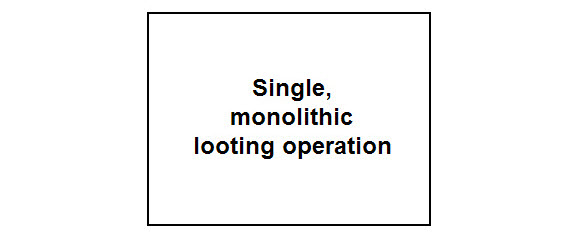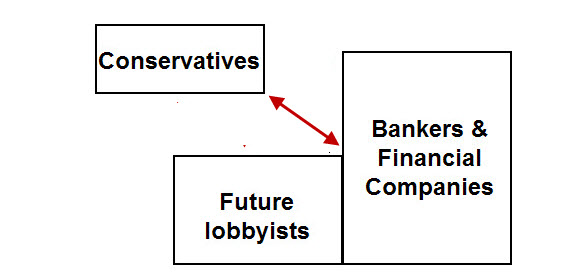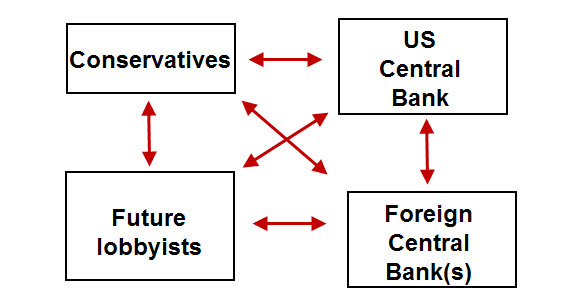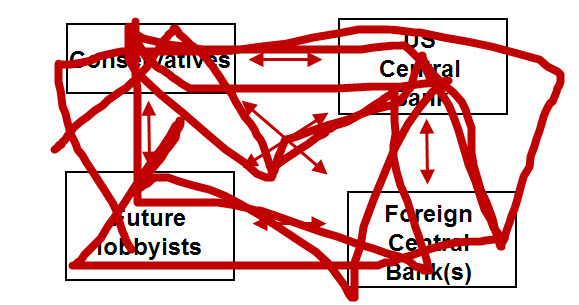This is the most explosive story of the day, because of what it implies – a rupture in the formerly seamless power structure down in DC.
The chaos in Washington represents the most serious split of political power in, well, far too long. Depending on your point of view, this is either a godsend or a complete disaster.
If you are the Bush administration, trying to find a crevice of political advantage for John McCain, it is a disaster.
You don’t even have to read between the lines on this one.
[quote]WASHINGTON – Even for a party whose president suffers dismal approval ratings, whose legislative wing lost control of Congress and whose presidential nominee trails in the polls, it was a remarkably bad day for Republicans.
A White House summit meeting on Thursday meant to shore up John McCain’s shaky campaign "devolved into a contentious shouting match." And that’s how McCain’s own campaign described it.
The meeting revealed that President Bush’s $700 billion bid to combat the worst financial crisis in decades had been suddenly sidetracked by fellow Republicans in the House, who refused to embrace a plan that appeared close to acceptance by the Senate and most House Democrats.[/quote]
Imagine that! Democrats were all ready to roll over and hand an open checkbook to the financial industry, but conservative Republicans (yes, there are a few left) said "no way." Apparently, they’ve been pushed too far on this matter.
Prior to this breakdown, here was the political-financial model I was operating from:

Now that seems to have changed in an important way. It would seem that the conservatives have split off from both the financial power structure and all the remaining Republicans and Democrats.
This next quote captures that dynamic quite well:
[quote]Treasury Secretary Henry Paulson begged Democratic participants not to disclose how badly the meeting had gone, dropping to one knee in a teasing way to make his point according to witnesses.
And when Paulson hastily tried to revive talks in a nighttime meeting near the Senate chamber, the House’s top Republican refused to send a negotiator.
"This is the president’s own party," said Rep. Barney Frank, a top Democratic negotiator who attended both meetings. "I don’t think a president has been repudiated so strongly by the congressional wing of his own party in a long time."[/quote]
So this is my new model:
Now this is really an earth-shaking development. The continuation of the illusion requires that everybody be on the same page, telling Americans how handing over three generations’ worth of money to the financial industry is really in their best interests. No cracks can be allowed in that story.
Even as the Mainstream Media goes out of its way to assure us that a failure to hand over our money to the banking industry would be the worst thing for us, it is pretty clear that a major schism now exists:
[quote]The consequences could be worse for Bush, and for millions of Americans if the impasse sends financial markets tumbling, as some officials fear. Closed-door negotiations were to resume Friday, but it was unclear whether House Republicans would attend.[/quote]
The next potential development, which I believe will really let us know that the final moments of the American dollar hegemony are upon us, will be if/when the monolithic central banking system develops a fissure and breaks apart (see next image):

The ability to coordinate all the competing interests and needs will assure paralysis and policies that work at cross purposes. Our sign that this is upon us will be a decline in the dollar, coincident with (sharply) rising interest rates.
When/if that happens, you had better have your financial affairs more or less structured exactly how you want them, because the doorway will not be big enough for everyone.
Here is my final model of what that will resemble:

